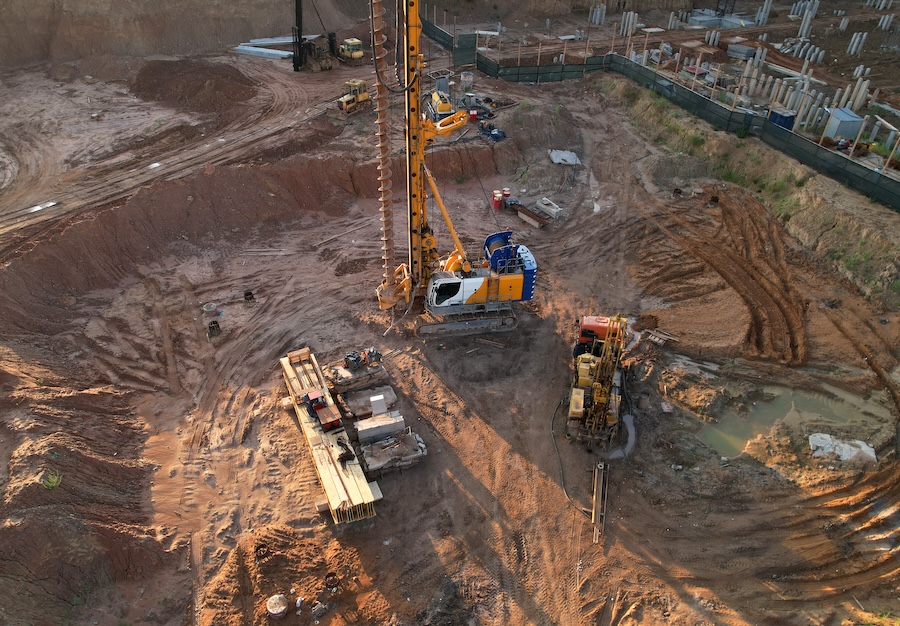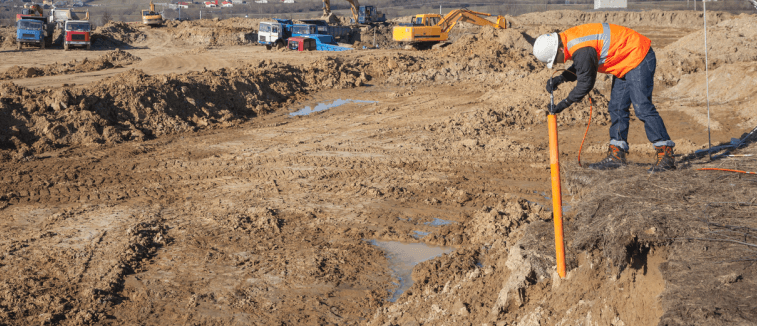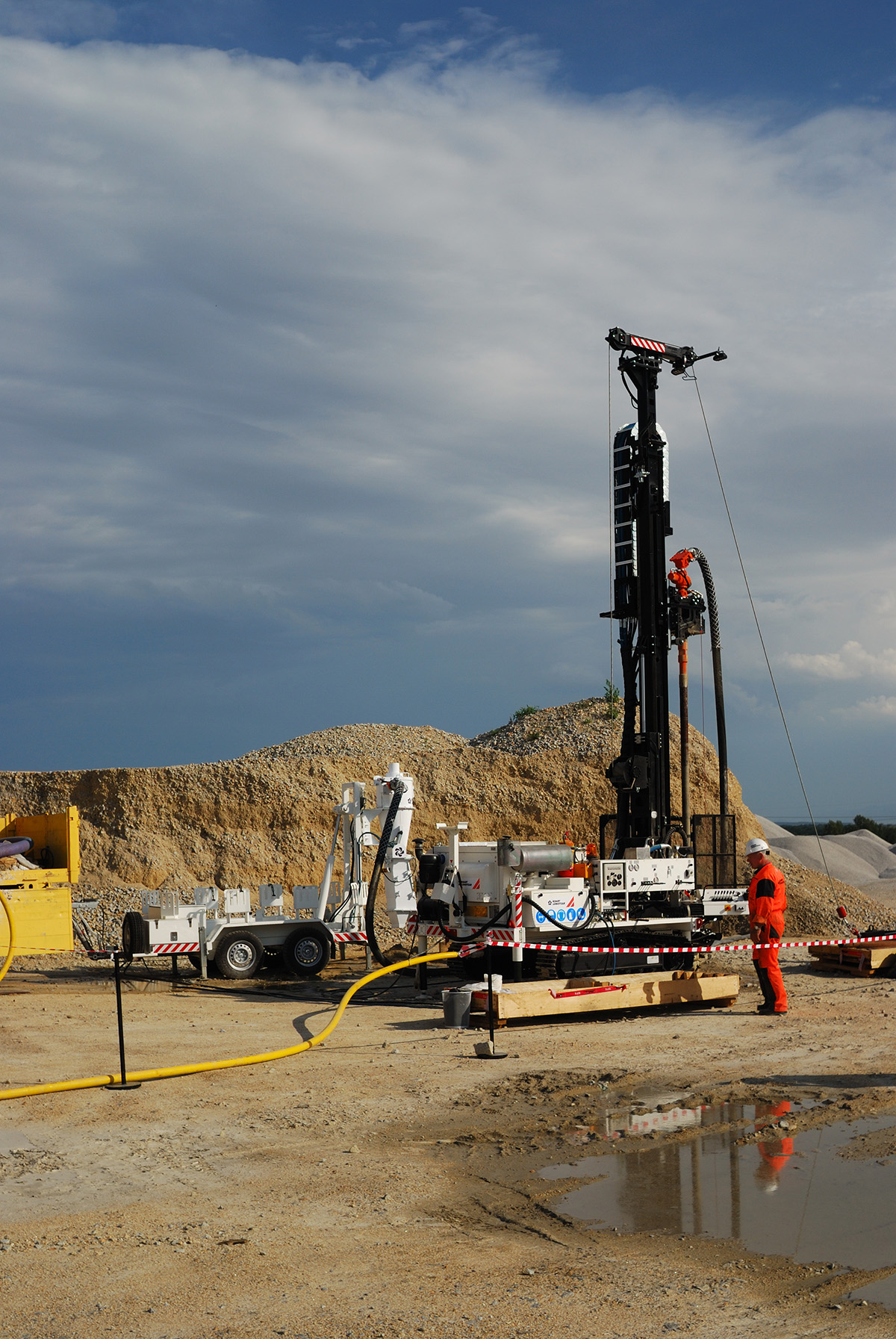Why All About Geotechnical Engineering Matters in Today's Facilities Development
Why All About Geotechnical Engineering Matters in Today's Facilities Development
Blog Article
The Value of Geotechnical Design in Addressing Environmental Difficulties and Enhancing Building Safety And Security
Geotechnical engineering works as a foundation in the crossway of ecological stewardship and building and construction safety and security, providing vital insights right into the habits of dirt and rock under different problems. This discipline not only addresses pressing environmental challenges such as soil disintegration and groundwater security yet additionally enhances the effectiveness of framework versus natural hazards. By implementing strategic site examinations and customized reduction measures, geotechnical designers play an essential duty in safeguarding both human lives and ecological integrity. The intricacies of these obstacles elevate essential concerns concerning the future instructions of this field and its effects for sustainable growth.

Role of Geotechnical Design
Geotechnical design plays an essential role in the style and building of framework by addressing the behavior of soil and rock materials under different conditions. This area of design is important for recognizing the communication between structures and the ground, that includes determining the load-bearing capacity of soil, examining security, and forecasting potential settlement or failure.
Geotechnical designers are accountable for conducting website examinations, which include sampling and screening dirt and rock to collect data on their physical and chemical residential properties. This info is vital for making structures, keeping walls, and various other earth-retaining structures that ensure safety and security and durability. Additionally, geotechnical engineering informs the selection of appropriate construction approaches and materials, thereby decreasing risks connected with dirt habits.
Furthermore, the assimilation of geotechnical engineering concepts right into metropolitan preparation and environmental administration is essential for resolving challenges such as ground contamination and groundwater monitoring. By understanding geotechnical aspects, engineers can establish lasting services that boost the resilience of facilities versus natural hazards, while likewise promoting ecological stewardship. Eventually, the role of geotechnical design is essential for attaining risk-free, durable, and ecologically conscious construction techniques.
Soil Erosion Mitigation
Dirt erosion positions a significant risk to both environmental security and framework stability, influencing approximately 24 billion lots of productive dirt shed annually worldwide. This phenomenon is aggravated by elements such as logging, urbanization, and poor agricultural techniques. Geotechnical design plays an essential role in developing effective soil erosion mitigation methods that secure both the setting and building and construction tasks.
One approach entails the implementation of erosion control methods such as plants growing, which maintains dirt with origin systems. In addition, the building and construction of retaining walls and terraces can efficiently minimize surface overflow and shield susceptible locations from disintegration. Correct drainage style is additionally essential; it decreases water buildup and directs excess overflow far from critical structures.
Furthermore, geotechnical designers use soil stablizing methods, such as the application of geotextiles and naturally degradable mats, to enhance dirt cohesion and protect against deterioration - geotechnical companies in south africa. Normal tracking and assessment of erosion-prone websites enable prompt interventions, ensuring long-lasting sustainability. By integrating these methods, geotechnical engineering not just mitigates the effects of soil disintegration but additionally adds to the resilience of framework against ecological challenges, inevitably promoting a safer and extra lasting developed environment
Groundwater Defense Approaches
Groundwater offers as an important source for drinking water, agriculture, and industrial procedures, making its security essential for useful content ecological sustainability and public health and wellness. Effective groundwater security strategies are vital in mitigating contamination dangers and ensuring the durability of this source.

Normal tracking of groundwater quality is additionally necessary, allowing very early discovery of contamination resources and helping with timely removal efforts. Utilizing advanced modern technologies, such as geophysical studies and remote picking up, help in determining potential hazards to groundwater reserves.
In addition, public education and stakeholder involvement are important, cultivating area support for groundwater protection campaigns. all about geotechnical engineering. By combining regulative measures, technological innovations, and community involvement, we can develop an extensive structure that safeguards groundwater sources while promoting lasting growth and construction practices
Landslide Danger Monitoring
Landslides pose considerable dangers to both human safety and infrastructure, making efficient danger management techniques crucial. Geotechnical engineering plays an important duty in recognizing, evaluating, and mitigating landslide risks. A detailed understanding of incline security, dirt technicians, and hydrology is essential for developing efficient risk administration strategies.
The very first step in landslide threat monitoring involves comprehensive site examinations, that include geological mapping and dirt screening. These examinations aid designers review the potential for landslides by recognizing crucial elements such as slope angles, soil composition, and water web content. Making use of innovative modern technologies such as remote picking up and geophysical studies can boost the precision of these evaluations.
When risks are identified, proper reduction actions can be applied. These might include engineering solutions such as preserving walls, drainage systems, and incline stablizing methods. Additionally, keeping an eye on systems must be established to find indicators of ground motion and changes in water degrees, permitting proactive treatments.

Enhancing Building Security
Building sites typically offer a myriad of threats that can jeopardize worker safety and project integrity. Geotechnical engineering plays an important duty in boosting building and construction safety and security by providing vital insights into read this post here subsurface problems. With comprehensive dirt and rock evaluation, geotechnical engineers can recognize potential threats, such as dirt instability, groundwater issues, and seismic vulnerabilities, which might compromise the security of building and construction tasks.
Carrying out geotechnical solutions, such as correct foundation style and the usage of maintaining structures, minimizes these dangers dramatically. These services not just make sure the stability of the frameworks being built but additionally create a more secure working atmosphere for building workers.
Moreover, promoting a culture of security through training and adherence to established safety and security procedures better enhances building and construction site safety and security. By integrating geotechnical proficiency right into the planning and implementation stages, building and construction tasks can accomplish higher safety and security standards, inevitably protecting workers and making sure successful job completion.
Conclusion
Finally, geotechnical engineering serves as a vital self-control in tackling environmental obstacles and advertising construction safety and security. Via reliable dirt erosion mitigation, groundwater protection approaches, and landslide threat administration, geotechnical engineers add to the growth of durable facilities. The integration of these techniques cultivates a much safer construction environment and boosts the sustainability of civil design projects. Ultimately, the proficiency of geotechnical engineers is crucial in guarding both natural deposits and human lives versus possible dangers.
Geotechnical design serves as a keystone in the crossway of environmental stewardship and building and construction security, providing essential insights right into the behavior of dirt and rock under various conditions. Geotechnical design informs the option of suitable construction approaches and materials, thereby lessening risks connected with dirt habits.
Geotechnical design plays an essential function in developing reliable soil erosion reduction techniques that guard both the atmosphere and building and construction projects.
Additionally, geotechnical designers employ soil stablizing methods, such as the application of geotextiles and naturally degradable floor coverings, to enhance soil communication and prevent deterioration. Via extensive dirt and rock analysis, geotechnical engineers can determine possible risks, such as soil instability, groundwater problems, and seismic susceptabilities, which might endanger the safety of construction activities.
Report this page